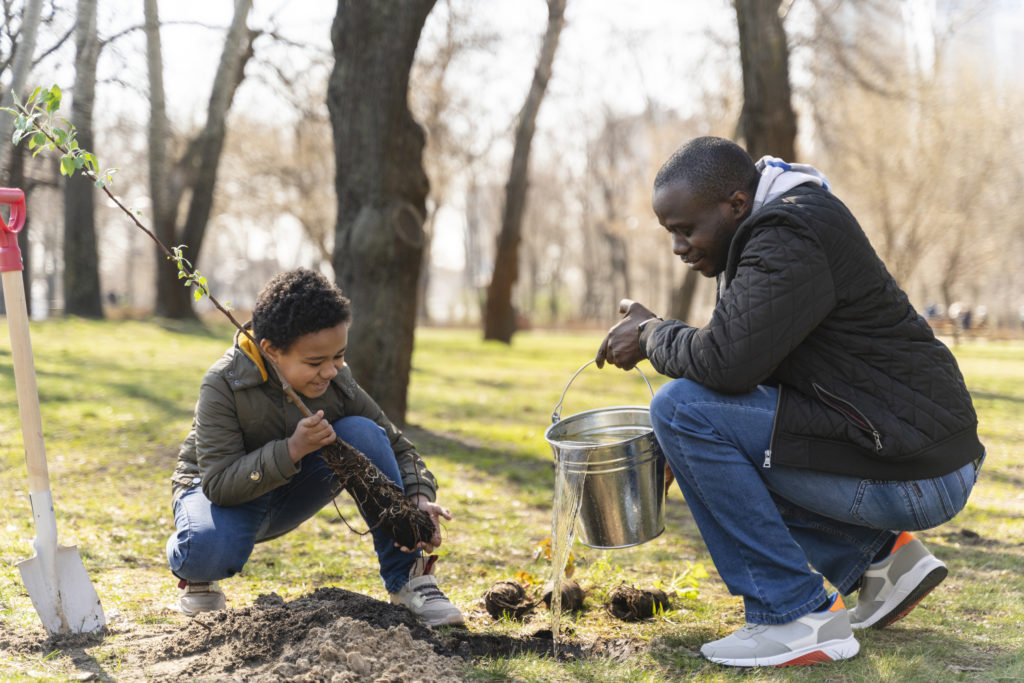In our fast-paced, modern world, gardening emerges as a peaceful yet potent activity that offers numerous benefits. It’s not just about growing plants; it’s a holistic activity that enriches our physical health, mental well-being, environment, and community.
Physical Health Benefits of Gardening
Gardening is an excellent way to engage in physical exercise. The CDC recognizes gardening as a moderate-intensity level activity that involves various muscle groups. Regular gardening tasks like digging, planting, weeding, and harvesting are great for improving strength, endurance, and flexibility. Additionally, growing your own fruits and vegetables can lead to a healthier diet, providing fresh, organic produce right at your doorstep.
Mental Health and Emotional Well-Being
The psychological benefits of gardening are significant. Engaging with nature through gardening has been shown to reduce stress, anxiety, and depression. According to a study in the Journal of Health Psychology, gardening decreases cortisol levels, a key stress hormone, thereby enhancing mood and emotional well-being. It offers a unique form of mindfulness meditation, allowing individuals to focus on the present moment, nurturing plants, and witnessing their growth.
Cognitive Benefits
Gardening also offers cognitive benefits, especially for older adults. Studies suggest that gardening can improve brain health and may reduce the risk of dementia. The sensory stimulation and the need for focus and planning in gardening help maintain cognitive functions, making it a beneficial activity for all ages.
Environmental Impact and Sustainability
Gardening positively impacts the environment in several ways. By cultivating plants, gardeners help to reduce the carbon footprint, as plants absorb carbon dioxide and release oxygen. Gardens can also support local wildlife, including bees, butterflies, and birds, contributing to biodiversity. Sustainable gardening practices, such as composting and using natural pest control, further enhance environmental benefits.
Social and Community Benefits
Community gardens bring people together, creating spaces for social interaction, collaboration, and education. These gardens can transform neighborhoods, providing fresh produce and green spaces, and promoting a sense of community ownership and pride. They are also excellent venues for intergenerational learning and cultural exchange.
Urban Gardening and Accessibility
Urban gardening is a growing trend that brings the benefits of gardening to city dwellers. Rooftop gardens, balcony gardens, and community plots make gardening accessible in urban areas. Websites like YardYum play a crucial role in this movement, connecting people who have space to spare with those who are looking for a place to garden. This not only promotes gardening but also fosters community connections and sustainable urban development.
Educational Aspect
Gardening serves as an educational tool, teaching people about plants, nature, and the importance of sustainable living. It’s an interactive way for children and adults to learn about where food comes from, the importance of biodiversity, and the basics of ecology.
Conclusion
The art of gardening is much more than planting and harvesting. It offers a gateway to improved physical health, mental clarity, environmental sustainability, and community engagement. Whether you’re an experienced gardener or a beginner, resources like Yardyum can help you find the space to start or continue your gardening journey. In every seed planted, there’s a lesson learned, a health benefit gained, and a step taken towards a more sustainable and connected world.
